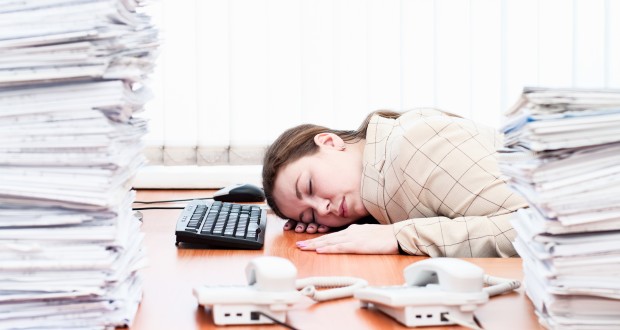You know the feeling – it gets to about two in the afternoon or so, and it becomes harder and harder to stay alert and focused. Your eyelids become heavy, your productivity slows to a crawl and all you can think about is catching a quick nap. Well, perhaps you can take solace in the fact that you have plenty of company; looking up the phrase “why am I so tired” on a popular search engine yields approximately 105 million hits.
So why do so many people struggle with staying awake? The reasons can vary, and can depend on a number of different factors. The following list details some of the common culprits behind your lack of energy.
- Irregular Sleeping Patterns – Let’s get the most obvious reason out of the way; simply put, getting insufficient sleep will make you tired the next day. What you might not realize is that getting too much sleep can also leave you feeling sleepy soon after waking up. A number of people sleep too little during the work week, only to try to compensate for this mistake by sleeping in on the weekends; many of these same people find themselves still feeling lethargic even after getting 10+ hours of sleep. The Centers for Disease Control and Prevention (CDC) recommends getting 7 to 9 hours of sleep each night.
- Lack of Exercise – This reason might strike you as sort of a contradiction – after all, doesn’t exercise make you tired? Actually, a regular exercise routine provides the body with more energy on a daily basis. Couch potatoes, in contrast, often doze off while watching TV.
- Too Much Caffeine – Caffeine is well known for its ability to provide quick pick-me-ups to tired workers. Unfortunately, the aftermath of a caffeine spike can be pretty ugly. When the energy boost provided by that cup of coffee or tea wears off, many people experience an “energy crash” that renders them fatigued and sluggish for several hours. In addition, many people become overly reliant upon caffeinated drinks, to the point that they need them simply to feel “normal.” It’s best to limit your daily intake of caffeine to about 300 milligrams, or about three 8 ounce cups of coffee.
- Taking a Pass On Breakfast – A surprisingly high number of people opt to skip breakfast on a regular breakfast, often in a misguided attempt to shed pounds. Not only will this strategy not trim your waistline (many people who don’t eat breakfast wind up eating too much later in the day), it can also deplete your body’s energy reserves.
- The Initial Effects of Diabetes – In addition to the nearly 19 million confirmed diabetics in the United States, the CDC estimates that roughly 7 million people have diabetes, but have not yet been diagnosed. One of the early red flags of diabetes is a persistent lack of energy.
- Anaemia – Anaemia may not be a household word, but it is still one of the leading causes of chronic fatigue. A person develops anaemia when their body stops producing a sufficient number of healthy red blood cells. Though this condition is often hereditary, anaemia can develop due to a lack of iron in the body. If a case of anaemia is indeed caused by an iron deficiency, a doctor may recommend a patient consume significant amounts of lean meat, shellfish and high-iron cereals.
- Chronic Fatigue Syndrome – For some individuals, strong and unabating feelings of tiredness might be caused by chronic fatigue syndrome, a mysterious condition with no known cause or cure. Cases of chronic fatigue syndrome are often severe enough to cause patients to radically alter their lifestyles. Doctors usually treat this disease with a combination of medications and stretching/range-of-motion exercises.
- Sleep Apnea – There are some unfortunate people who, despite having no chronic health problems and leading healthy lifestyles, still suffer from frequent bouts of fatigue. The answer behind these baffling energy problems might be sleep apnea, a condition that briefly stops the body’s breathing while the patient sleeps. Though such disruptions are only momentary, they can cause the patient to feel exceedingly tired the following day. One of the most effective tools for treating sleep apneas are CPAP machines, which treat the patient by increasing air pressure inside the throat.
 Natural Knowledge 24/7 Educate yourself with nutrition, health and fitness knowledge.
Natural Knowledge 24/7 Educate yourself with nutrition, health and fitness knowledge.






